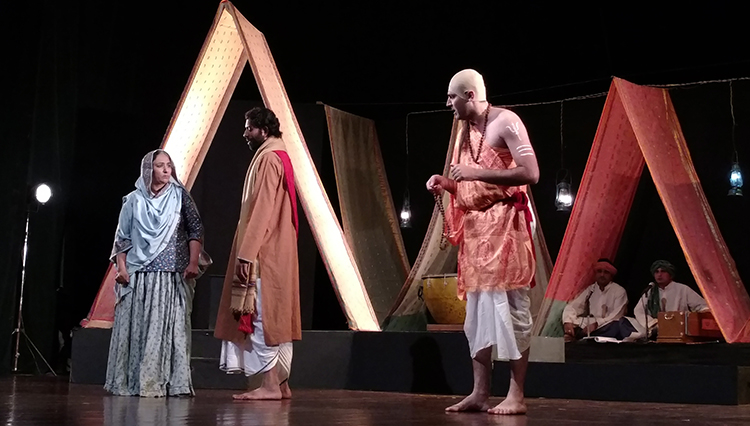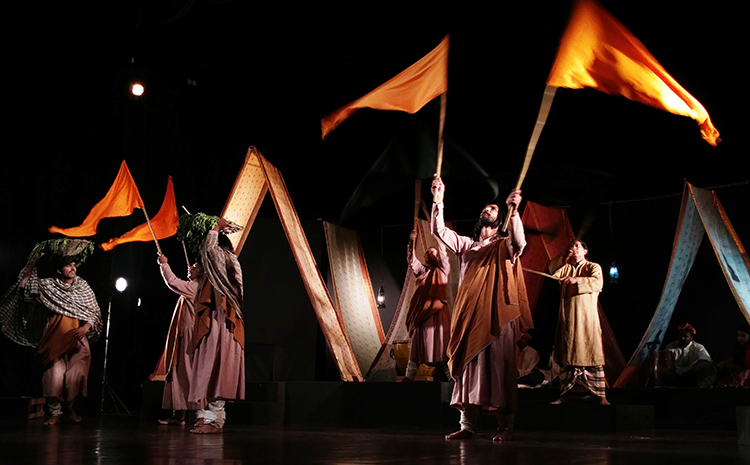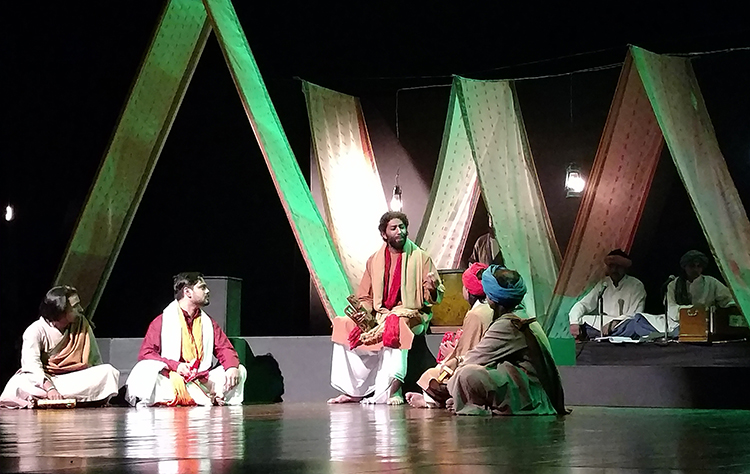Written by: Sana Shahid
Posted on: December 15, 2016 | 
A blind beggar sings Kabira's poetry
December 14th saw the performance of Ajoka Theatre’s new play, Kabira Khara Bazaar Mein, at the Pakistan National Council of Arts in Islamabad. Ajoka has long been known for bringing eye-opening plays and events to the public. The ‘Theatre for Peace’ initiative seeks to promote a message of love and compassion in times of intolerance and conflict. The team especially invited Indian director, Kewal Dhaliwal, to bring the story written by Bhisham Sahni to the stage.
Kabira Khara Bazaar Mein celebrates the life and teachings of Bhagat Kabir, who openly challenged the caste system practiced by Hindus, and promoted a direct relationship with God, founded purely on love and understanding. It is an inspiring story that highlights the teachings of the Bhakti Movement, which sought to promote equality, religious tolerance and harmony. The movement had many parallels with Sufi teachings and was initiated by forward-thinking personalities and poets like Kabira in the 15th century.

Kabira was born to a Muslim family, in a society dominated by Hindu Pandits and Muslim Mullahs. He did not practice either faith, as he thought that organized religion had become discriminatory and unnecessarily complicated. Instead, he spread the message of peace and love for all humanity. His unorthodox views inspired many, but also invited the wrath of religious clerics, who constantly criticized him and his teachings.

The play kicked off with a colorful dance performance, in which a traditional song about Kabira was played live. The musicians remained on stage throughout the play, and enchanted the audience with soothing tabla beats and harmonium melodies. At certain points during the play, performers in colorful clothes would take over the stage and dance to Kabira’s poems and the songs being played by the live musicians. Despite the serious theme of the play, this brought life to the stage, and the crowd appreciated these performances with loud applause.
The actors were nothing short of excellent with their performances. Everything from their clothing to their accents was done exceptionally well. One particularly amusing scene depicted a Hindu Pandit and Muslim Mullah standing together and discussing how Hindus differentiate between their various castes by using distinct “lines” on their foreheads. This scene was brilliantly done, as it sent out an important message about the confusion that our spiritual representatives have brought to their respective religions by introducing such rules and customs.

Throughout his life, Kabira remained committed to his path despite the various attacks and criticisms that he had to endure. His poems have been sung by people of India and Pakistan alike, but the public seems to have forgotten the significance of his teachings. Ajoka Theatre must be commended for bringing this forgotten tale and its unifying message to the Pakistani audience at a time when religious and social intolerance seems to be at its peak.
You may also like: